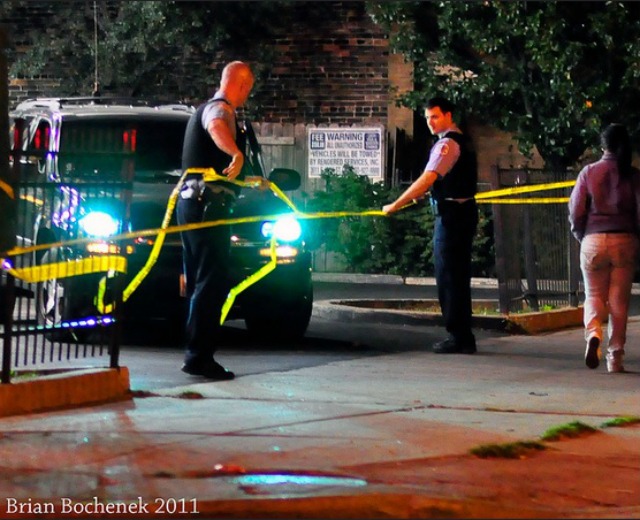Four Chicago Neighborhoods Have Been Murder-Free For Years
By Selena Fragassi in News on Jun 28, 2015 4:00PM
Mount Greenwood, Edison Park. Forest Glen. North Park. They’re four Chicago communities you don’t often hear much about—perhaps because they are neighborhoods that haven’t logged a homicide in three-plus years.
As much of the local news coverage lately has focused on the shootings and gun violence that has plagued the city, a Chicago Sun-Times / Homicide Watch Chicago report looks at crime data that shows some pretty significant ‘records’ set in these areas. Mount Greenwood, on the Southwest Side, has had no recorded murder since 2005; in Edison Park, on the far Northwest Side, the last murder was in 2002.
The report also points out the Loop would have been on the list for a three-year streak save for the shooting of tech executive Steven LaVoie who was killed by a former employee in his office building in 2014.
On the flipside, Austin has been the most hit by violence with 500 homicides since 2001, or nearly 3 people every month in the past 14 years. In second and third positions are Englewood and Humboldt Park.
So what makes the other four communities so safe? The report and accompanying map points out that Mount Greenwood, Edison Park. Forest Glen and North Park have a number of things in common—are all on the city’s borders (practically the suburbs) and “generally have lower crime and higher home-ownership rates and median income than the average.” In Mount Greenwood, for example, 90% of residents own their homes with an average household income of $86,546. In Edison Park that ratio is 80% home ownership with an average income of $81,418 (compared to the city-wide rate of $47,408 a year). Because of that many say there’s a “sense of ownership in the community.”
According to census data, these areas typically also are home to the largest proportion of Chicago Police and Fire employees, and have less of a gang problem than other neighborhoods.
Ald. Mary O’Connor (41st), which includes Edison Park, tells the paper, “There isn’t a block in our ward that doesn’t keep a close watch on things. We have a community that keeps an eye on the neighbors. And we believe they are extremely sensitive to recognizing issues and responding promptly.”
Another expert, Yale University sociologist Andrew Papachristos, who lives in and studies crime in Chicago, says people in low-income neighborhoods also have a strong sense of community “with families living there for generations and looking out for one another,” but the problem is that younger men of the family have gravitated toward gangs and add up a list of felony convictions that make it difficult to find work, which adds to the “self-perpetuating cycle of poverty and violence that isn’t present in the city’s wealthier neighborhoods.”
It’s not analysis we haven’t heard before, but the greater question remains, what do we do about it to get more neighborhoods reporting homicide-free streaks?
